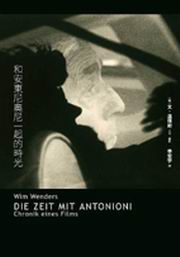
Wim Wenders' Paris Texas (1984) (Part 1)
(commentary by Rey Bianchi (Wen Huei-Min), NCCU English Dept (retired))
Harry Dean Stanton (Travis)
Nastassja Kinski (Jane)
Dean Stockwell (Walt)
Aurore Clement (Anne)
Hunter Carson (Hunter)
...as in any great work of art (the 7 major Art Forms are Music, Literature, Painting, Sculpture, Drama/Theater, Dance, and the newest addition, Film), the task of interpreting the work lies primarily with the viewer/audience. What did you get out of it? should be the question that the artist asks. The universality of a work, its greatness, is determined by the extent that it is identified with and appreciated by the greatest number of viewers/listeners.
Paris, Texas is great. It has been acclaimed both by audience and jury. It has something to say to all of us.
Whatever you get out of it should be different from what i got out of it. It tells its story, and we observe, and think, and reflect on how it has affected each one of us. What i have to say here is a reflection of what it means to me: what i got out of it for myself and for my relationship with others.
For me, it is a story of isolation. Walk and Anne were isolated, living high above the city, working high above the streets, playing out their own little lives as most people do...but it's kind of like every day, every year, was the same for them, repeated over and over (as depicted by Walt spinning that little top while he was
taking the plane to go and meet Travis).
Travis had isolated himself, in disgust over his own inability to love the way he should have, so in desperation he flung himself away from society, getting as far away from it as possible, never wanting to go back. He did not want to go back,
the further out he went, the farther away he got from the past. When Walt found him he had just about forgotten everything. He even escaped from Walt after Walt had found him. But deep down in his heart he was searching for something - probably himself - and he kept going on and on and on. One could say that he was wasting his life, but for me, he was a survivalist. He and Jane and Hunter were the survivalists in this story, and that's why they meant so much to each other.
(本文作者為國立政治大學英文系退休教授 Rey Bianchi )










